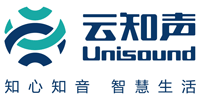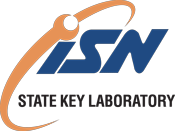Special Sessions
Special Sessions
ICASSP 2016, following the tradition of previous ICASSPs, will have 11 high quality special sessions that complement the regular program with new or emerging topics of particular interest to the signal processing community. The aim of a special session is to provide an overview of the state-of-the-art, highlight current research directions and challenges in specific fields of signal processing.
Each Special Session will be a two-hour long oral session. Special Sessions will be intermixed with regular sessions during the conference.
Tim Dividson, Jianguo Huang
ICASSP 2016 Special Session Chairs
List of Special Sessions
SS1- Signal Processing Tools for Modeling and Analysis of Neural System Behavior and Brain Connectivity
Organized by: Behnaam Aazhang and Tongtong Li
SS2- Learning-Based Sound Source Localization and Spatial Information Retrieval
Organized by: Antoine Deleforge and Sharon Gannot
SS3- Advances in Signal Processing for GNSS
Organized by: Marco Luise and Pau Closas
SS4- Emerging Stochastic Computing Techniques for DSP
Organized by: Chuan Zhang and Yeong-Luh Ueng
SS5- Speech Enhancement for Alleviating Hearing Impairment
Organized by: Tao Zhang and DeLiang Wang
SS6- Pathological Speech Processing
Organized by: Tan Lee, Juan Ignacio Godino Llorente and Douglas OʼShaughnessy
SS7- Acoustic Scene and Event Analysis in Multisource Environments
Organized by: Tuomas Virtanen, Emmanouil Benetos and Mark Plumbley
SS8- Big Data and Signal Processing: A Computational Topology Approach
Organized by: Harish Chintakunta, Michael Robinson and Hamid Krim
SS9- Financial Signal Processing and Machine Learning for Electronic Trading
Organized by: Ali N. Akansu, Dmitry Malioutov and Daniel P. Palomar
SS10- Mobility Controlled Networked Communication Systems
Organized by: Athina Petropulu, Wade Trappe
SS11- Recent Advances in the Emerging Field of Signal Processing on Graphs
Organized by: Pascal Frossard and Pier Luigi Dragotti
SS1- Signal Processing Tools for Modeling and Analysis of Neural System Behavior and Brain Connectivity
Organized by: Behnaam Aazhang and Tongtong Li
Summary:
The emerging field of neuroengineering holds a great potential to help scientists and healthcare providers in their understanding how human nervous system works and how neurological disorders could be mitigated. However, to become applicable in clinical practice, neuroengineering technologies need more research, development, and clinical trials. This Special Session will bring together engineers, neuroscientists, neurologists, and neurosurgeons with interest in applying engineering principles to neuroscience with the goal of understanding, repairing, and re-engineering the human nervous system. The primary objective of this session is to initiate conversations among technologists, engineers, and clinicians to synergize their efforts to reverse-engineer the nervous system in order to assist both the healthy and diseased nervous systems.
SS2- Learning-Based Sound Source Localization and Spatial Information Retrieval
Organized by: Antoine Deleforge and Sharon Gannot
Summary:
Audio source localization is traditionally addressed using geometrical and physical models of sound propagation. In recent years, we observed the emergence of novel approaches making use of supervised or unsupervised learning methods to retrieve spatial characteristic of the environment directly from data. This special session is the first effort to gather these works, often stemming from different fields and communities.
SS3- Advances in Signal Processing for GNSS
Organized by: Marco Luise and Pau Closas
Summary:
This special session will feature contributions in two key areas of the current state of the art about signal processing for Global Navigation Satellite Systems (GNSS): processing of the received radio signals in satellite navigators for acquisition/tracking/positioning functions, and signal-in-space design for next-generation GNSS. Worldwide experts from the scientific communities of signal processing and navigation will be invited to report on their most recent key results.
SS4- Emerging Stochastic Computing Techniques for DSP
Organized by: Chuan Zhang and Yeong-Luh Ueng
Summary:
Recent progresses in the field of stochastic computing have made it one very promising solution for “smarter” DSP implementations. On the other hand, the unsolved problems will temporarily hinder further applications of stochastic computing. It is therefore urgent to figure out efficient solutions to those problems as soon as possible. Fortunately, experts in this research area have made quite significant progress in addressing them.
SS5- Speech Enhancement for Alleviating Hearing Impairment
Organized by: Tao Zhang and DeLiang Wang
Summary:
Speech enhancement is an active area of research with many important applications, such as hearing prosthesis and robust automatic speech recognition. Traditional techniques for speech enhancement include analysis of signal statistics, beamforming or spatial filtering, and computational auditory scene analysis. The recent introduction of data driven methods has resulted in a substantial boost in the performance of speech enhancement algorithms, now to a level that improves speech understanding of hearing-impaired listeners in adverse listening conditions. These advances present new opportunities for utilizing speech enhancement methods in hearing aids and cochlear implants with the potential to substantially alleviate the handicap of hearing impairment on listenersʼ ability to function in daily listening environments. This proposed special session will provide a forum to present and examine the latest developments and trends in speech enhancement for the purpose of alleviating hearing impairment. The special session will emphasize the emerging theme of employing machine learning for speech enhancement.
SS6- Pathological Speech Processing
Organized by: Tan Lee, Juan Ignacio Godino Llorente and Douglas OʼShaughnessy
Summary:
Speech is the most preferred and natural modality of communication for human beings. Thus the presence of any pathology that influences the speech quality obviously affects the communication abilities of the individuals suffering from the disorders. Due to the high complexity of the speech production mechanisms, the nature and etiology of these disorders are quite broad, but roughly speaking might be categorized into three main groups, namely: functional, neurological or organic. With independence of the etiology, speech disorders are deviations of a pattern, obstructing the information flow in different ways (at acoustic, linguistic or paralinguistic levels) by producing atypical and abnormal registers. The atypicality of pathological speech could be attested by changes of voice or speech quality, loss of intelligibility, presence of phonological errors, pronunciation alterations, lack of intonation, and many other symptoms. In this context, during the last few years, there have been increasing interests and efforts on applying state-of-the-art spoken language technologies to process and extract new knowledge from disordered speech. The goal is to establish objective and quantitative evidences to improve clinical diagnosis, to develop efficient tools for the detection and assessment of relevant diseases, and to improve the reliability of automatic speech recognition systems with new techniques. This special session aims at bringing together signal processing researchers working on different types of speech and voice disorders to promote and exchange ideas for tackling the major challenges in this area. In particular, the way of handling large-scale corpora of pathological speech, and the multi-lingual issues in language impairments will likely be the focus of our discussion.
SS7- Acoustic Scene and Event Analysis in Multisource Environments
Organized by: Tuomas Virtanen, Emmanouil Benetos and Mark Plumbley
Summary:
Computational analysis of acoustic scenes includes tasks such as scene recognition and acoustic event analysis. In realistic acoustic scenes, multiple sources are typically active simultaneously. Accurate computational analysis of such scenes requires expertise from various signal processing areas, such as robust feature extraction, robust pattern recognition, and source separation. This special session presents most recent acoustic scene research related to multisource environments using various state-of-the-art signal processing techniques, including but not limited to deep learning, multilabel classification, and active learning. The invited papers come from a representative combination of leading research groups doing research related to various applications of acoustic scenes, including urban and domestic acoustic scene analysis, acoustic surveillance, and multimedia information retrieval. The first talk of the session, given by the organizers, will also introduce the research field to the broader scientific community.
SS8- Big Data and Signal Processing: A Computational Topology Approach
Organized by: Harish Chintakunta, Michael Robinson and Hamid Krim
Summary:
Computational Topological Data Analysis has been primarily emerging as a very promising approach to data analysis in general and big data applications in particular, in applied mathematicians, and more recently in theoretical computer science and to a lesser extent in Signal Processing. The tenor of the session consists of a high level introduction to TDA, and a summary of the contributions, while the individual papers are aimed at demonstrating the power of TDA in more classical signal processing, from Time series analysis to Clustering, signal processing on networks, and analysis of spatial data.
SS9- Financial Signal Processing and Machine Learning for Electronic Trading
Organized by: Ali N. Akansu, Dmitry Malioutov and Daniel P. Palomar
Summary:
The fields of quantitative finance and electronic trading provide a rich application area for techniques from signal processing and machine learning. This session facilitates the dissemination of recent progress in this multidisciplinary research including topics in portfolio analysis, statistical arbitrage modeling, market microstructure modeling, optimal order execution and other applications of stochastic optimal control, pricing and valuation, game theoretic aspects of trading, and natural language applications in trading. The session is expected to motivate the signal processing community for future research in this fast growing field.
SS10- Mobility Controlled Networked Communication Systems
Organized by: Athina Petropulu, Wade Trappe
Summary:
The special session will focus on two key issues: (1) On the role and exploitation of mobility/motion control for enhancing wireless communications. (2) Dually, on the design of path planning and coordination control schemes, at the same time respecting certain communication constraints.
SS11- Recent Advances in the Emerging Field of Signal Processing on Graphs
Organized by: Pascal Frossard and Pier Luigi Dragotti
Summary:
Numerous applications such as social, energy, transportation, sensor, and neuronal networks, rely on the processing of high-dimensional data that naturally resides on networks or other irregular structures. This has created the need for developing new tools for processing structured data that lives on the vertices of weighted graphs, which cannot be addressed by classical signal processing algorithms. This important paradigm shift in signal processing, coupled with the numerous applications in very different fields, has fueled the rapid development of an inter-disciplinary research community that has been working on theoretical and applied aspects of graph signal processing. This emerging field merges algebraic and spectral graph theoretic concepts with computational harmonic analysis to process signals on structures such as graphs. In particular, new methods have been recently proposed to generalize fundamental operations such as filtering, translation, modulation, dilation, and down-sampling to the graph setting, or to design localized multi-scale transforms or sparse approximations for high-dimensional data on graphs. In parallel, research groups have recently looked at the application of the graph signal processing framework to diverse problems such as big data analysis, 3D point clouds coding or for processing biological data.
ICASSP 2016 Patrons
 |
 |
 |
 |
 |
 |
 |
 |
 |
 |
 |
 |
 |
 |
 |
 |
 |
 |